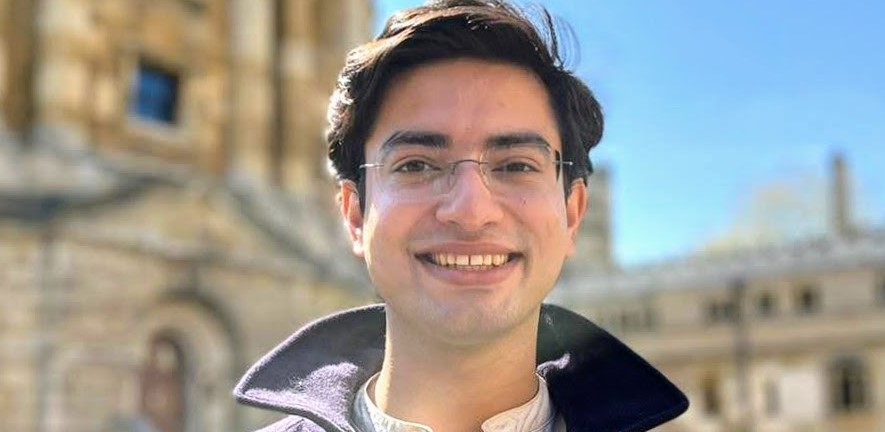
Submitted by Rachel Gardner on Tue, 09/07/2024 - 15:24
Many congratulations to PhD student Chaitanya Joshi, one of just five students across Europe to receive a Qualcomm Innovation Fellowship Europe 2024.
These Fellowships are awarded annually through a programme that recognises, rewards and mentors innovative PhD students across Europe, India, and the United States.
In Europe, the Fellowships are awarded to excellent young researchers in the fields of artificial intelligence and cybersecurity who each receive individual prizes of $40,000 for a project they have proposed and mentorship by the Qualcomm Technologies research team.
Chaitanya – a PhD student supervised by Pietro Liò, Professor of Computational Biology here – was selected as a winner for his project, 'Geometric Generative Models for 3D RNA Design'.
RNA (Ribonucleic acid) plays a key role in turning the instructions held in the DNA of our genome into functional proteins in our cells. It is of interest to Chaitanya for its potential in the development of new drugs.
"Geometric deep learning and generative modelling techniques have revolutionized protein design," he explains. "My research aims to develop equivalent tools for designing RNA molecules and therapeutics.
"Conventional drug discovery focuses on small molecule- and protein-based medicines that counter the end stages of diseases. But recently, there has been increasing interest in designing new RNA-based therapeutics that intervene earlier in disease processes to cut off disease-causing information flow in the body. Notable examples include mRNA vaccines and CRISPR-based genomic medicine."
For his project, Chaitanya aims to develop the first deep learning framework for 3D RNA design, "outlining an execution plan for an RNA-centric 3D generative model that builds upon best practices that have revolutionized protein design," he says.
"I will discuss why AlphaFold is not enough, how to address RNA-specific modelling challenges – and why incorporating inductive biases that drive RNA structure are critical to develop bespoke generative models for RNA design.
"What sets my work apart from research in related areas (including the latest version of Google DeepMind's AlphaFold)," he adds, "is my focus on addressing RNA-specific modelling challenges and developing interdisciplinary collaborations with wet labs to experimentally validate my AI-designed RNAs.
Innovation Fellowships
The Qualcomm Fellowships programme has been running for 15 years and is seeing an increasing number of applicants. In 2024, there were nearly 50% more projects were submitted than last year. "This really speaks to the growing field of machine learning, as well as the need to keep our rapidly developing software and hardware more secure,” says Michael Hofmann, Senior Director of Engineering at Qualcomm Technologies Netherlands B.V.
Projects proposed for Fellowships his year ranged from fundamental algorithms and large language models to applications such as extended reality, generalisable computer vision, RNA design, and more. Seventeen PhD students were selected to present their project proposals at a two-day final in May and five were chosen as winners – albeit with difficulty.
"The strength of the proposals and high quality of presentations made it very difficult for the judges to decide who the winners for 2024 should be. We are honored to mentor all the winners further in their research," Michael Hofmann adds.
- See Qualcomm's announcement of the 2024 Qualcomm Innovation Fellowships Europe.

